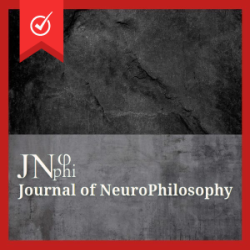Journal of NeuroPhilosophy Vol. 4 No. 2 (2025): December Issue Published
We are delighted to announce the release of Volume 4, Number 2 (December 2025) of the Journal of NeuroPhilosophy. This issue offers a rich and diverse exploration of the intersections between neuroscience, philosophy, and ethics, highlighting innovative ideas and fostering dialogue across disciplines.

In the Letter from the Editors, Nandor Ludvig addresses a timely and important topic: the development of AI companions that are genuinely beneficial to humans. Ludvig calls for active dialogue between authors and readers, emphasizing the ethical and philosophical implications of emerging AI technologies, and encouraging collaborative discussion on how neuroscience and philosophy can inform their design and integration.
The Opinion and Perspectives section presents a series of thought-provoking reflections:
-
George Goutos investigates the relationship between telepresence and consciousness, asking how remote interactions mediated by technology shape our subjective experience of being.
-
João Guerreiro explores the enduring neuroethical question of free will versus determinism, inviting readers to reconsider the implications of neuroscientific discoveries for personal responsibility and moral agency.
-
Shuchen Yao, Da Dong, Liping Yang, and Yating Yin examine double standards in moral judgments within intimate relationships, offering a nuanced, multidimensional perspective on ethics, psychology, and social behavior.
-
João Guerreiro and Guilherme Ventura analyze the gut–brain axis, discussing its influence on the mind–body problem and challenging traditional philosophical assumptions about the separation of mental and physical processes.
In the Articles section, Dan Durso presents an empirical study titled Art as Artifact, exploring the hedonic function of art and how aesthetic experiences are shaped by cognitive and neural mechanisms. Durso’s work bridges empirical neuroscience with philosophical inquiry, offering a fresh perspective on the universal appeal of artistic creation.
The Philosophy for Neuroscientists column features Jeremy Horne, who asks: What is authentic personal identity? This piece encourages neuroscientists to engage with philosophical questions about the self, identity, and consciousness, emphasizing the value of interdisciplinary dialogue in understanding the human mind.
Finally, in the Letters section, Andrea Bucci shares reflections on Alzheimer’s disease, highlighting the distinction between the mental and the physical and offering insights grounded in both research and philosophical reasoning. Bucci’s letter underscores the importance of considering multiple perspectives when studying complex neurodegenerative conditions.
This issue is crafted to stimulate discussion, inspire research, and deepen our understanding of the mind, brain, and ethical considerations in contemporary neuroscience. We invite readers to explore the full range of articles, engage with the ideas presented, and contribute to the ongoing conversation at the forefront of neurophilosophical inquiry.



